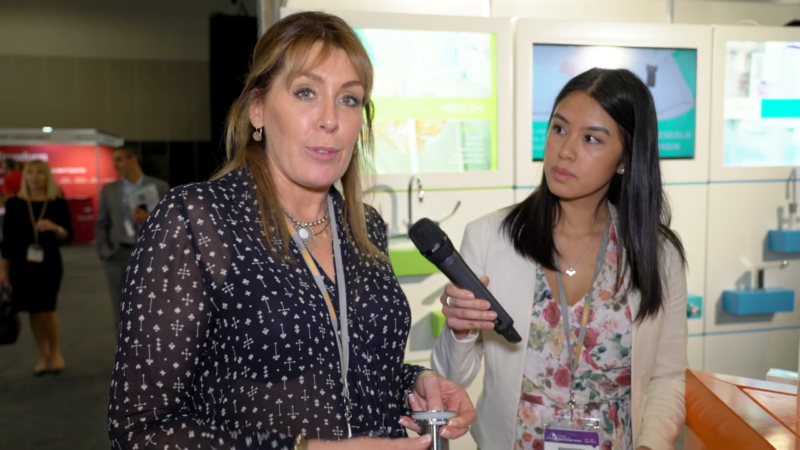Avoiding unplanned readmission into hospital is important. A significant proportion of hospital readmissions are avoidable and vulnerable groups, such as older people, are disproportionally affected by unplanned readmissions. Unplanned readmissions are associated with poorer health outcomes, lower satisfaction with healthcare, and increased health system costs.
The transition process between hospital and home is risky for the patient, however it is also a phase where patients may not necessarily need the intensity of a hospital bed, nor might patients actually want to remain in hospital especially if the same level of patient safety could be assured in the patient’s own home.
Tracey Johnson is the CEO of Inala Primary Care, a not-for-profit general practice located in Inala serving approximately 7000 patients; 4400 of whom attend clinic regularly. Inala is a suburb of Brisbane, Queensland and has a population of great cultural and linguistic diversity, with just under 40% of residents speaking English at home. It is also one of Queensland’s most socioeconomically marginalised urban areas.
Australian Health Journal spoke with Tracey on the role of Inala Primary care in reducing hospital admissions.
The delivery of care in a culturally and linguistically sensitive manner across all levels of the healthcare system is seen as deficient. In an effort to improve healthcare access and equity, Inala Primary Care and the Mater Integrated Refugee Health Service (MIRHS) co-developed the Mater Culturally & Linguistically Diverse Healthcare Coordinator Service (MCHooSe).
Commonly delivered services included following up with external health services, chart reviews and helping patients coordinate external health care appointments. Surveys of primary care clinicians (GPs and practice nurses) revealed that MCHooSe improved patient access to external health services and improved patient understanding of their treatments.
The data also revealed that the primary care clinicians felt the patients’ wellbeing improved after their patients had access to the service and that patients were more likely to be compliant with attendance and treatments. Most importantly, primary care clinicians said they received communications from the hospital quicker if MCHooSe was involved.
In combination, these factors are known to reduce the risk of hospital readmissions. MCHooSe highlights the potential to improve hospital outcomes through better healthcare coordination and improved healthcare equity for multicultural patients.
Tracey also talks about the outcomes of non-dispensing pharmacists in general practice in a pilot running at Inala Primary Care. Prior health research has shown the integration of non-dispensing pharmacists in the general practice clinic has significantly reduced emergency department presentations and hospital readmissions in certain patient groups (long-term polypharmacy suffering from congestive heart failure or chronic obstructive pulmonary disease).
As part of the pilot, pharmacists are working towards averting hospital readmissions, new hospital presentations and adverse health outcomes. Formal evaluation of the pilot is currently being completed by Brisbane South PHN and Griffith University.
You Might also like
-
AHW Exhibitor: Gentec Australia
Gentec Australia, an Australian supplier of tapware and designer of wash basins to the healthcare industry exhibited at last week’s Australian Healthcare Week 2019. Their patented basin design reduces the risk of infection through splashing from water through an offset waste, as well as other infection control features. Know My Group reporter Anne Dao spoke with General Manager for Sales Graeme Bunt and State Manager (VIC) Vanessa Beever.
In an upcoming segment Australian Health Journal will cover the technologies deployed and steps taken by hospitals and clinics in infection control.
Post Views:
809 -
Message from former Australian Health Minister Hon Greg Hunt
The Honourable Greg Hunt served in the Australian Government as Minster for Health and Aged Care from 2017, previously as Industry, Innovation and Science Minister and before that the Environment Minister.
Elected as the Member for Flinders in 2001, Greg announced his retirement from politics late 2021 and in 2022, ahead of the Federal Election, having completed 20 years as a public servant.
Australian Health Journal recently caught up with Greg in a relaxed interview at his home in the Mornington Peninsula, Victoria to hear how a 9 month sabbatical has allowed him to focus on family, fitness and future. This has even included some “brutal spin cycle classes!”.
-
Stronger patient involvement in new medicines
New strategic agreement between Medicines Industry and Government means stronger patient involvement in new medicines.
Medicines Australia has secured a 5-year Strategic Agreement with the Federal Government, centered on earlier patient involvement and influence in the availability of new medicines in Australia.



